gpt-oss-120b & gpt-oss-20b Open AI URL
Cómo instalar los nuevos modelos gpt-oss de OpenAI en tu ordenador para tener tu propio ChatGPT en local Xataka URL
gpt-oss-120b & gpt-oss-20b Open AI URL
Cómo instalar los nuevos modelos gpt-oss de OpenAI en tu ordenador para tener tu propio ChatGPT en local Xataka URL
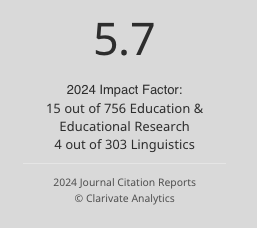
Editors-in-Chief: Alex Boulton Université de Lorraine, France and Pascual Pérez-Paredes Universidad de Murcia, Spain
ReCALL is the journal of the European Association for Computer Assisted Language Learning (EUROCALL). It is published by Cambridge University Press.
It seeks to fulfil the stated aims of EUROCALL as a whole, i.e. to encourage the use of technology for the learning and teaching of languages and cultures, and especially the promotion and dissemination of innovative research and practice in areas relating to CALL including, but not limited to: Applied Linguistics, Corpus Linguistics, Digital Pedagogy, Digital Literacies, Computer-Mediated Communication, Learning Analytics, Second Language Acquisition, and Educational Science.
The journal publishes research articles that report on empirical studies (quantitative, qualitative, or mixed methods), as well as occasional rigorous meta-analyses or other syntheses or surveys, and papers that make substantial contributions to theoretical, epistemological or methodological debates. Typical subjects for submissions include foreign or second language learning and development in technology-enhanced learning environments and practical applications at developmental stage, with firm theoretical anchoring in CALL; evaluative studies of the potential of technological advances in the delivery of language learning materials and enactment of language learning activities; and discussions of theory, policy or strategy at institutional and disciplinary levels with clear connections to technology-mediated language learning.
ReCALL is a Gold Open Access journal.
Birmingham, UK, 30th June – 3rd July 2025
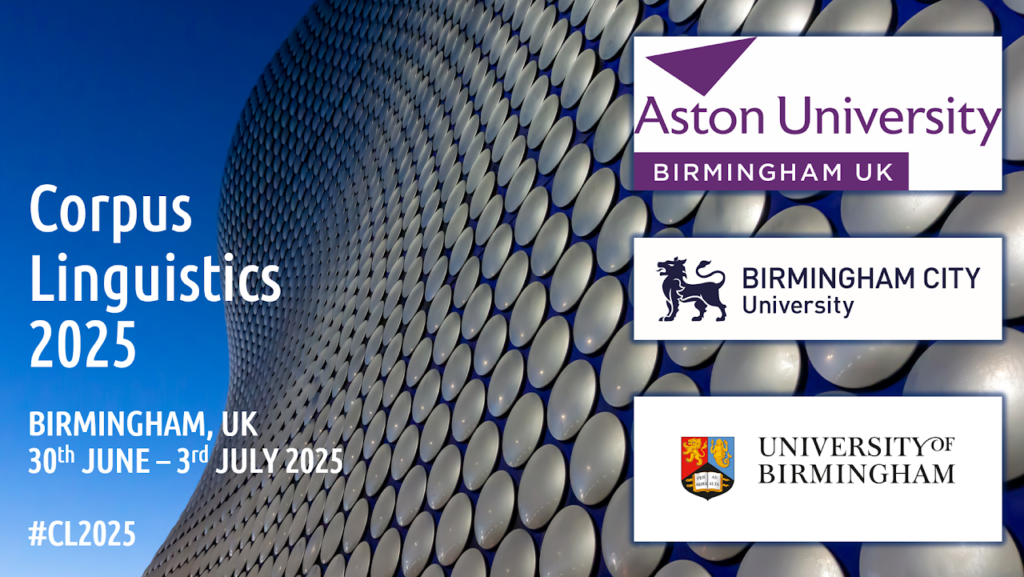
13TH International Corpus Linguistics Conference (CL2025), co-organised by Aston University, Birmingham City University and the University of Birmingham.

The weekend after the conference, the Back to the Beginning final Black Sabbath concert took place.
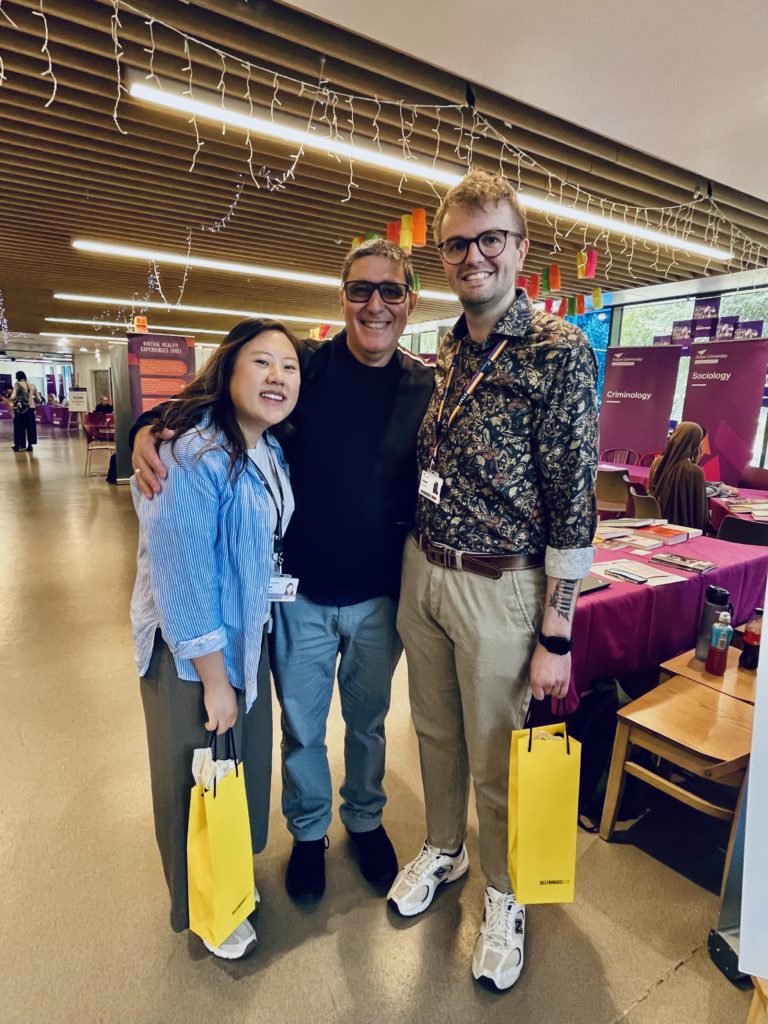
Robbi Love (Aston) and Joyce Lim (Aston) did a wonderful job, massive congrats!!!!
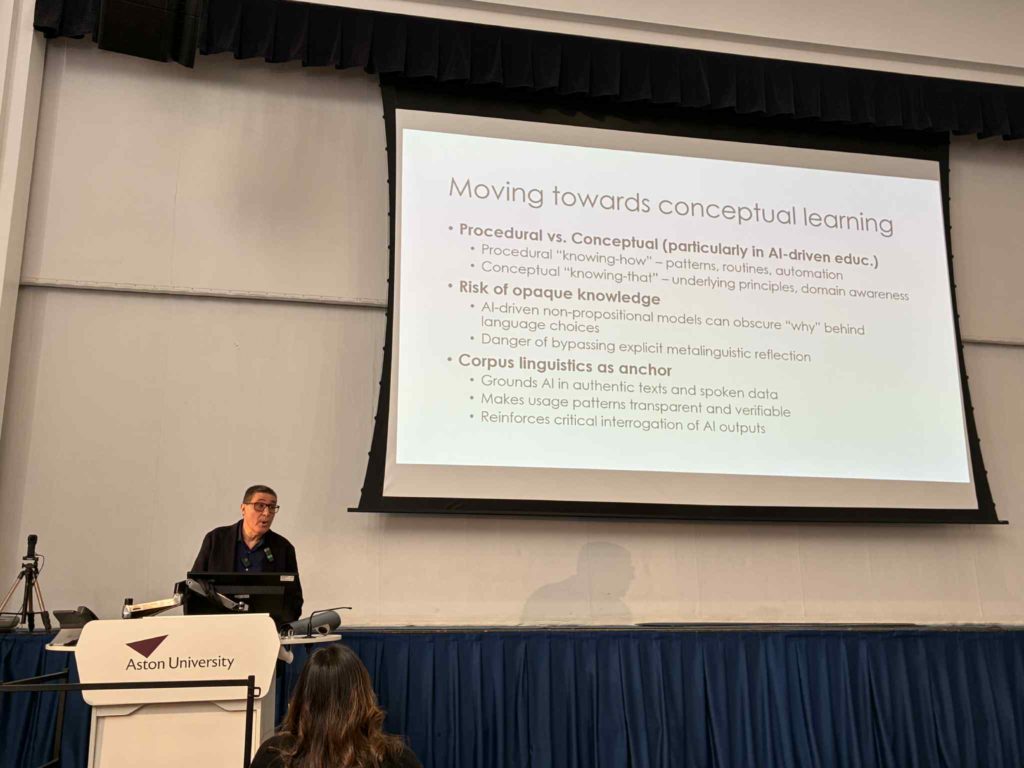
My plenary: “Corpus Linguistics and AI in the reconfiguration of language learning ecologies”. You can find the abstract and references here.

Always good to see old friends; from left to right, Laurence Anthony, Dawn Knight and Paul Thompson.
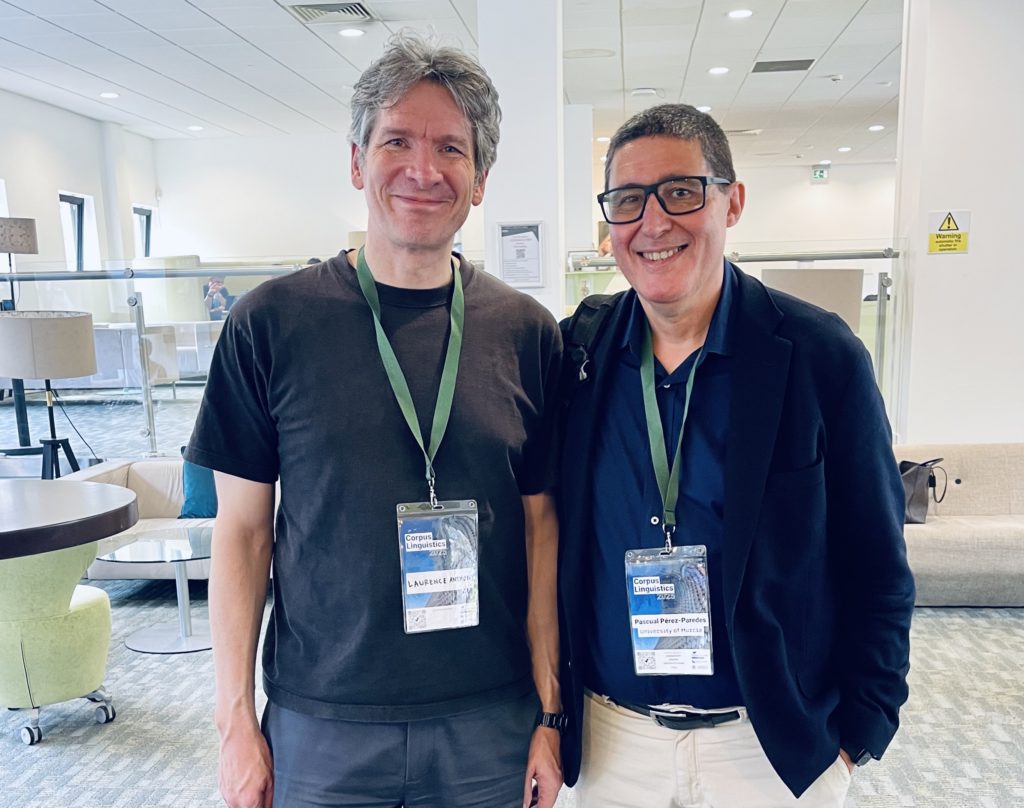
Great conversations with Laurence Antohny; we seem to coincide often lately 🙂
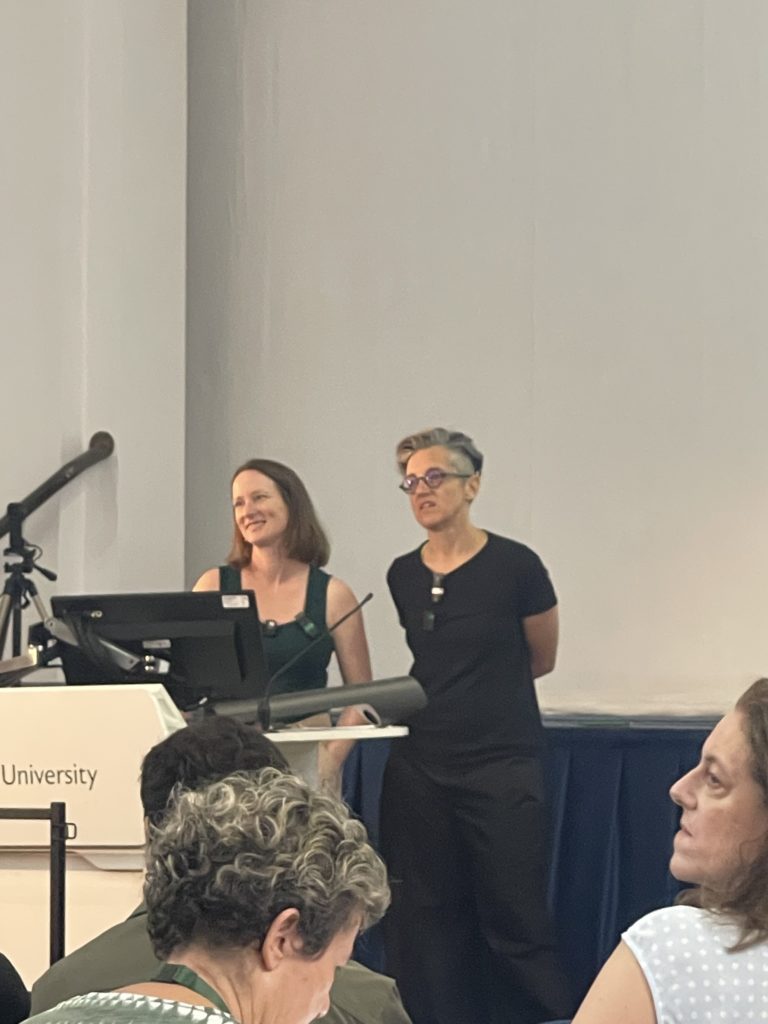
Great plenary by Charlotte Taylor & Anna Marchi
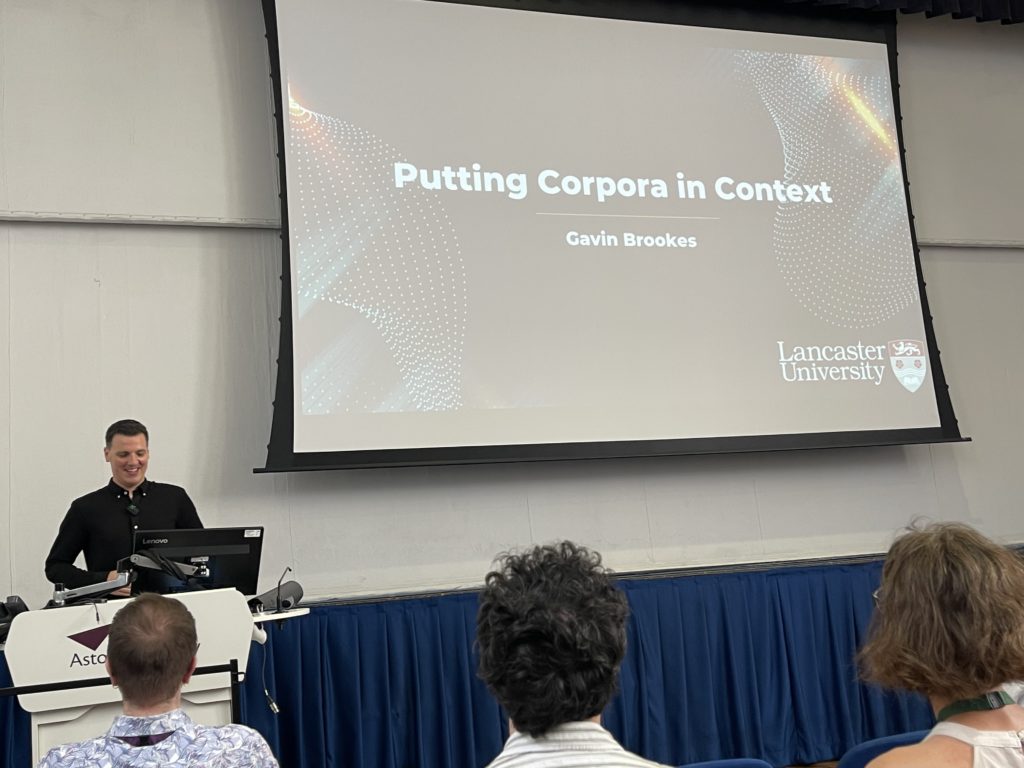
Another great plenary, this one by Gavin Brookes
This one from John Sinclair’s Tuscan Word Centre, 2001. With Michael Barlow and Rosalía Crespo.

And this one with John Sinclair, Elena Tognini Bonelli, Michael Barlow, Nadja Nesselhauf, Susan Conrad and so many more.

And the grand balcony pic

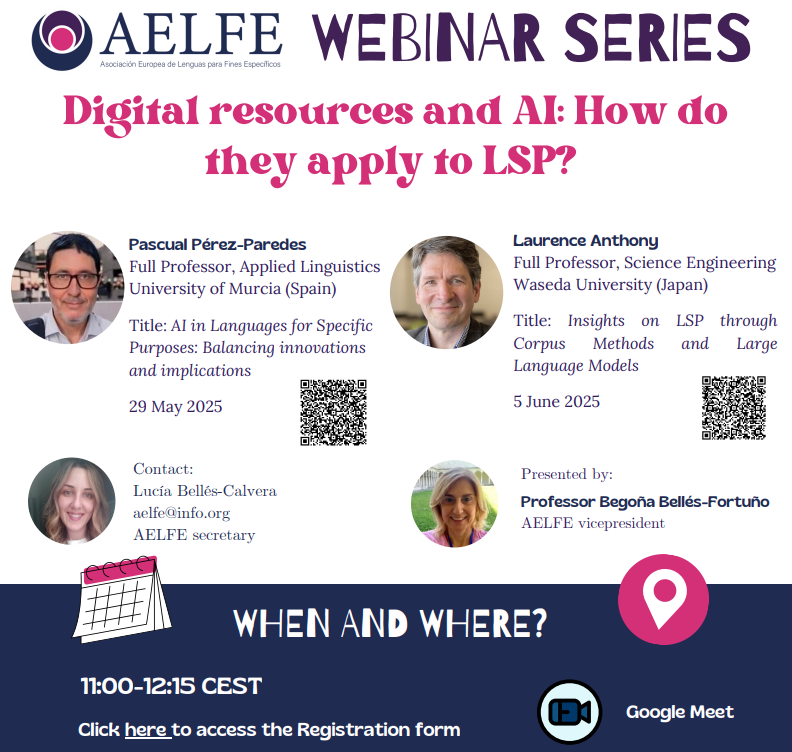
Basturkmen, H. (2025). Core Concepts in English for Specific Purposes. Cambridge: Cambridge University Press.
Eaton, Sarah E. 2023. Postplagiarism: transdisciplinary ethics and integrity in the age of artificial intelligence and neurotechnology. International Journal for Educational Integrity 19(1), 23.
Han, Z. (2024). Chatgpt in and for second language acquisition: A call for systematic research. Studies in Second Language Acquisition, 46(2), 301-306.
Lévy, Pierre. 2025. Symbolism, Digital Culture and Artificial Intelligence. RED. Revista de Educación a Distancia 81(25). 1-20.
Pérez-Paredes, P. & Aguado-Jiménez, P. (forthcoming). Language for Specific Purposes Research Methods. In Ruth Breeze & Carmen Sancho (Eds.) The Encyclopaedia of Applied Linguistics. Wiley.
Pérez-Paredes, P. Curry, N. & Ordoñana-Guillamón, C. (2025). Critical AI literacy for applied linguistics and language education students. Journal of China Computer-Assisted Language Learning (JCCALL). Special Issue Theme: Cultivating AI literacy in language education. https://doi.org/10.1515/jccall-2025-0005
Pérez-Paredes, P. Curry, N. & Aguado Jiménez, P. (forthcoming). Enriching AI literacy with corpus-based pedagogy. Computer-Assisted Language Learning. Special Issue Theme: Corpus-Based Language Pedagogy in the AI era Special issue for Computer Assisted Language Learning.
Youtube videos
3 créditos
Info URL
Fecha de celebración: 1-15 Julio 2025
Preinscripción hasta 8 junio 2025
Dirección: Dr Alejandro Curado Fuentes, Universidad de Extremadura
E-mail: acurado@unex.es
Dr Alejandro Curado Fuentes
Prof Pascual Pérez-Paredes, Universidad de Murcia
Preinscripción: 26/05/2025 – 08/06/2025
Matrícula: 09/06/2025 – 29/06/2025
Impartición: 01/07/2025 – 15/07/2025
Lugar de celebración
Campus Virtual UEx
Presentación de solicitudes
Url: https://formacionpermanente.unex.es/funciones/matricula-de-alumnos/
Importe de la matrícula
Importe: 0 €
Universidad de Extremadura
